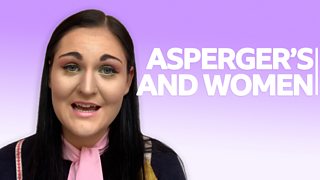As an autistic person, here’s what I want you to know about dating
By Sarinah O’Donoghue // ���˿��� The Social contributor // 29 March 2021
My name’s Sarinah, and I’m going to give you the lowdown on autism and relationships.
Autistic people often have unconventional ways of socialising or relating to others, and with dating etiquette, there’s no exception.
It’s important to note that this is only a guide, drawn from my own perspectives, and it doesn’t reflect the vast range of approaches and ways of navigating relationships when your partner is autistic.

Autism And Relationships
Exploring some of the hurdles autistic people face when they’re dating.
Verbal communication is key
For many of us, body language isn’t picked up on, and signals and hints can fail to register. This makes it easier for us to be mocked, misinterpreted, or stood up, so dating can be a pretty terrifying prospect for us. I can’t count the number of times a friend told me that somebody was flirting with me when I thought that they were just being friendly!
Don’t assume that your autistic partner understands what you mean by your physical gestures alone. Boundaries are so significant when it comes to any physical relationship, and when you’re dealing with somebody who is particularly susceptible to miscommunication it’s imperative to have these conversations as early as possible.
Respect our personal space
Autistic people often have a lower social demand than neurotypicals, so we may spend more time alone, leading to assumptions that we don’t enjoy our partner’s company.
To avoid tension and resentment it’s so important to talk about boundaries and stick to them.
I’ve had previous problems with not wanting to see my partners as much as they wanted to see me, preferring to be alone, pursuing my special interest. Burnout is particularly common in autistic people. We might want to be alone for days, or even weeks, while we recover from it. Conversely, some autistic people develop intense romantic feelings extremely quickly, and they might not know how to express them conventionally. This can lead to feelings of awkwardness or unease from potential partners.
To avoid tension and resentment it’s so important to talk about boundaries and stick to them. Making a timetable for dates or filling out a calendar well in advance is a good start.
Embrace our special interests
Autistic people often have intense or narrow interests and many won’t enjoy “ordinary” hobbies like socialising or clubbing. In order for an autistic person to feel content and fulfilled they need to have their interests accepted or embraced. They should never be expected to hide them just to feel included.
If they are open to sharing it, show curiosity in your partner’s special interest, whether that’s attending a Star Trek conference or spending the afternoon at an animal sanctuary. I guarantee that this’ll mean more to them than any designer watch! If you make us choose between you and our special interests then it’s highly unlikely that the relationship is going to last.
Understand that “masking” can be exhausting
Understandably, an autistic person’s reluctance to partake in activities with their partner can be interpreted as disinterest, but it’s more complicated than that. For example, going to the pub may require us to use what limited energy we have to pretend that we’re having a good time.
Be sympathetic if you get cancelled on, especially if it’s an event with lots of socialising, or if it’s in an environment with heightened sensory stimuli.
Feigning interest in ordinary hobbies or pastimes is part of what’s known as “masking”. Masking also manifests in other ways, such as laughing at jokes we don’t immediately get, making eye contact even though it makes us uncomfortable, and wearing clothes that we don’t like in order to better fit in.
If your partner has agreed to do something outwith their comfort zone check in on them regularly during the activity. Understand that just because we are physically able to go to the pub and socialise it doesn’t mean we actually want to. Be sympathetic if you get cancelled on, especially if it’s an event with lots of socialising, or if it’s in an environment with heightened sensory stimuli.
And there you have it – my top tips for autism and relationships. Remember that just because somebody’s actions might be linked to their autism, it doesn’t mean that you have to accept behaviours that you’re not comfortable with. Boundaries work both ways and anyone reserves the right to walk away from a situation that they’re not comfortable with.




